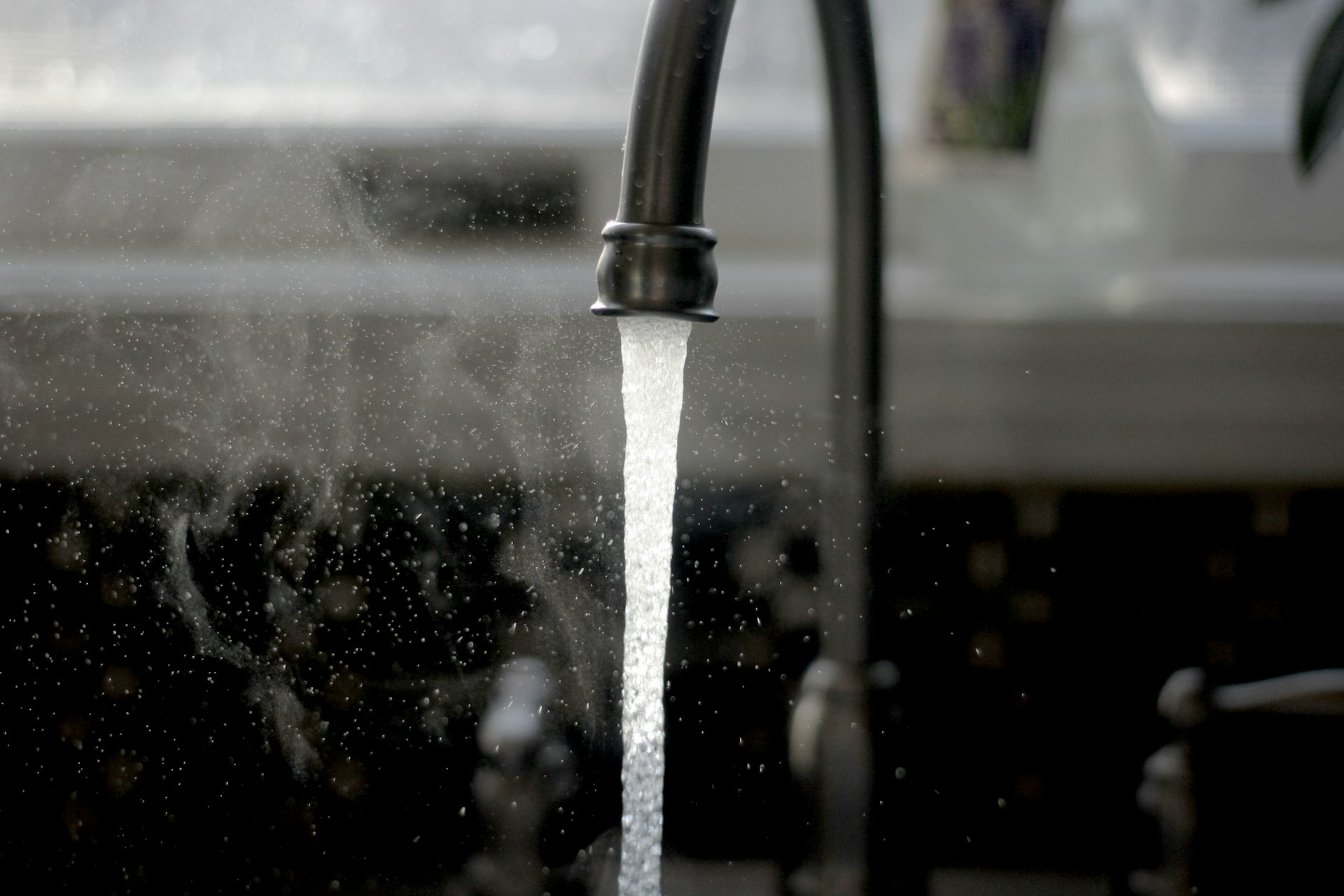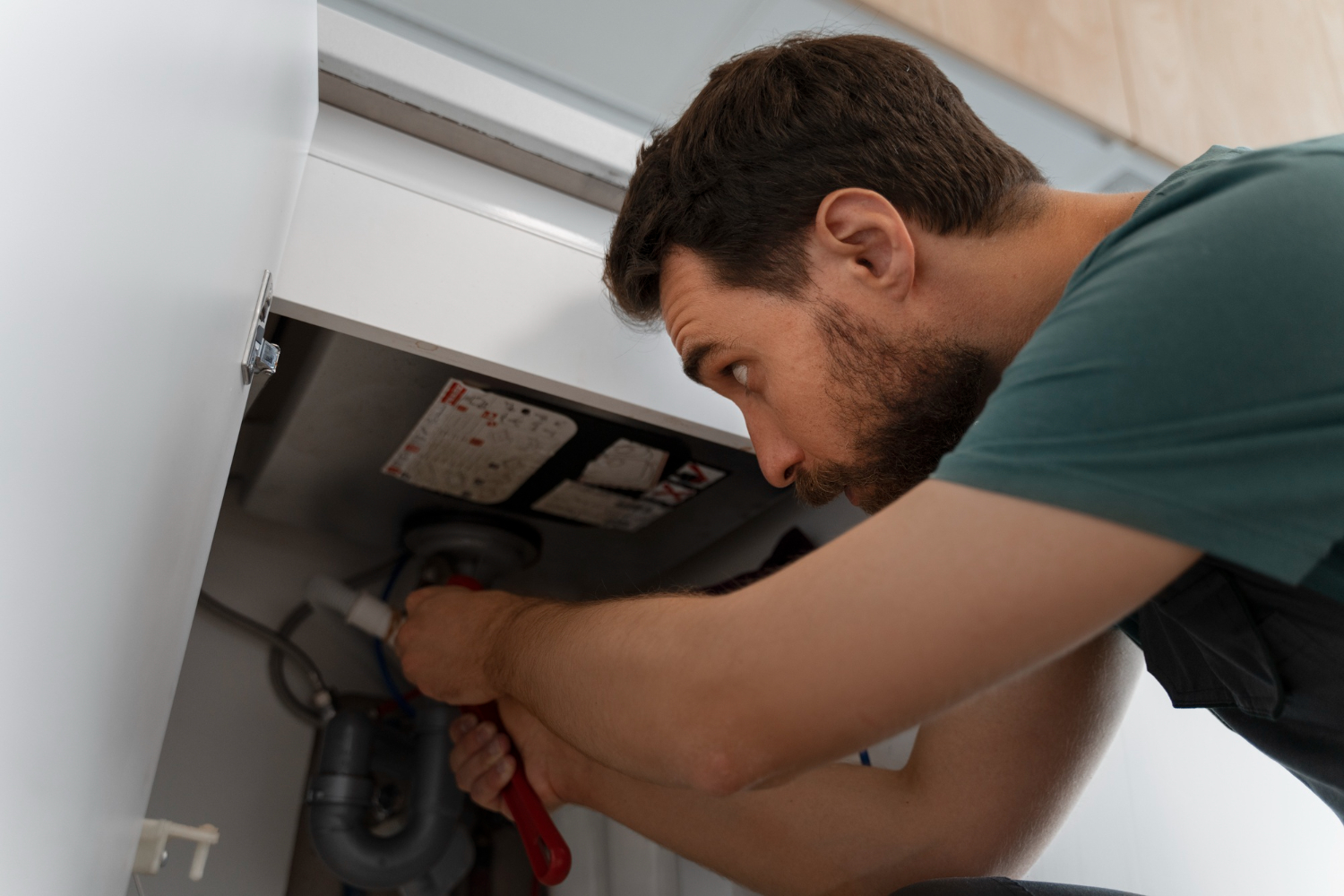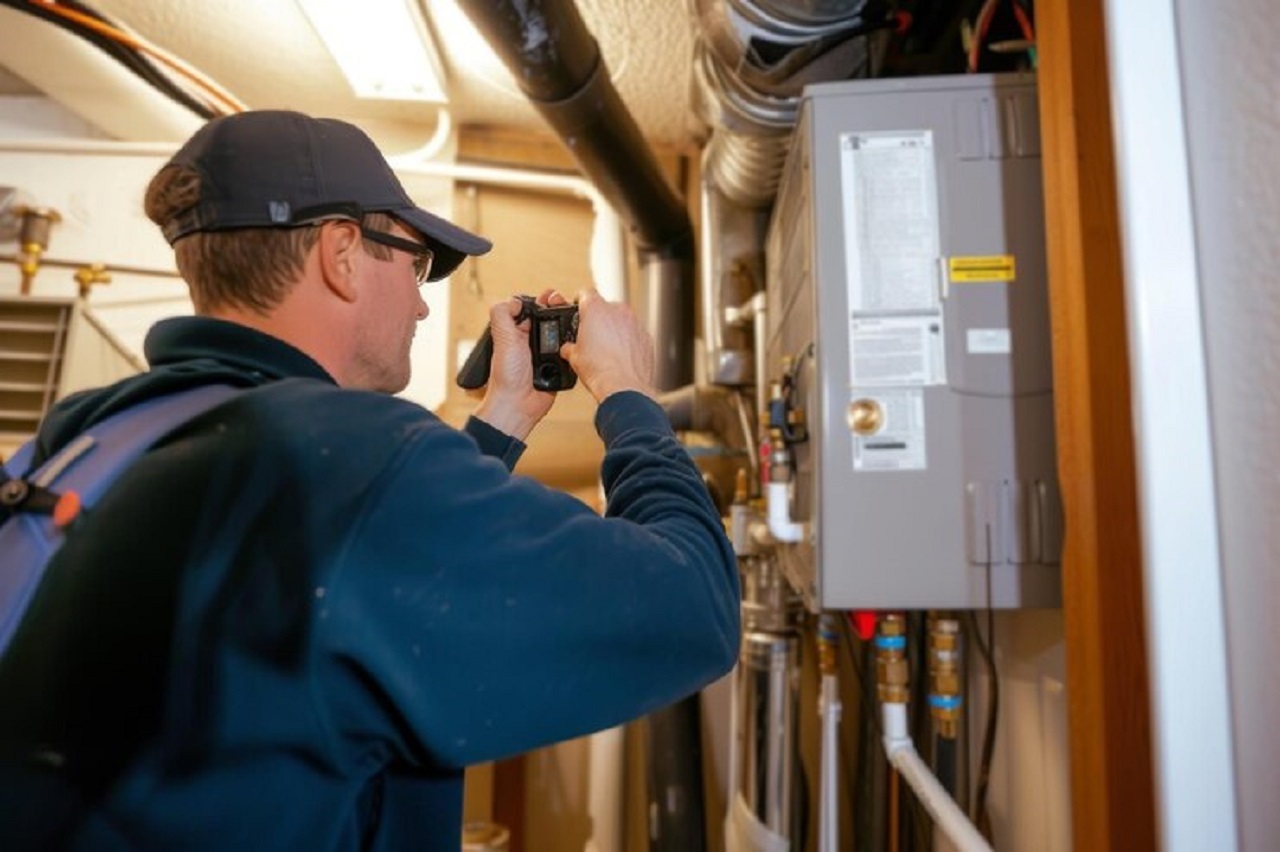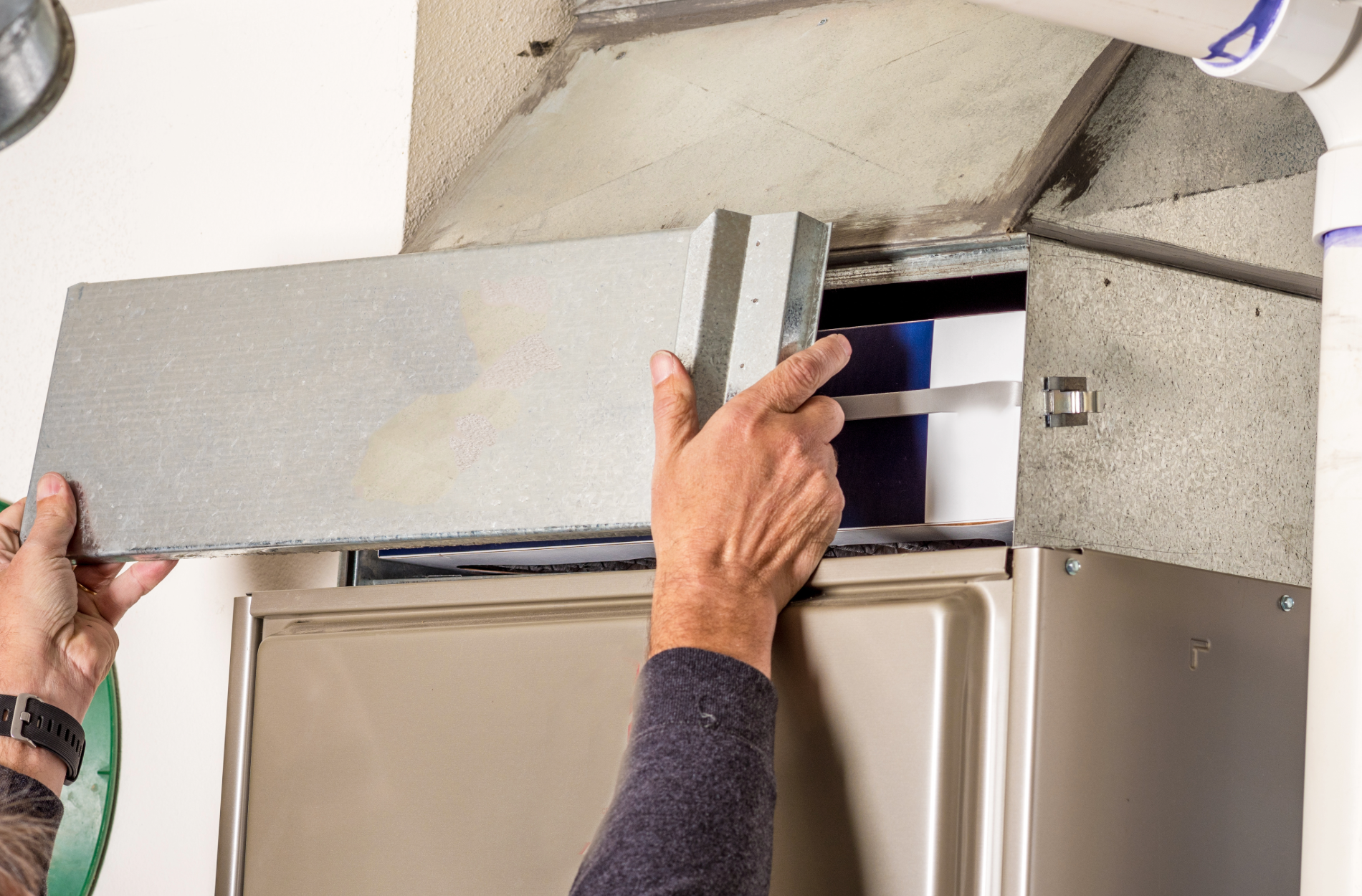Water softeners play a crucial role in maintaining the health and efficiency of home plumbing systems. Hard water, which contains high levels of calcium and magnesium, can cause various issues in your home. Over time, these minerals build up in pipes, appliances, and fixtures, leading to clogs, inefficiency, and potential damage.
Understanding the benefits of water softeners can help you protect your plumbing system and ensure a steady supply of high-quality water.
Understanding Water Softeners: What They Are and How They Work
Water softeners are devices designed to remove minerals such as calcium and magnesium that cause water hardness. Hard water can lead to a variety of issues in your home, from clogged pipes to inefficient appliances. The primary function of a water softener is to prevent these problems by transforming hard water into soft water.
A water softener employs a process known as ion exchange. Inside the softener, hard water flows through a bed of resin beads. These beads are coated with sodium ions. As the hard water passes through, the calcium and magnesium ions are attracted to the beads and cling to them. In exchange, the beads release sodium ions into the water. This process effectively removes the hardness minerals and softens the water.
Additionally, water softeners include a regeneration cycle. During this cycle, a salt solution flushes the mineral-laden resin beads, replenishing them with sodium ions and washing away the calcium and magnesium. This cycle ensures the system continues to operate effectively, providing your home with a constant supply of soft water.
Common Signs of Hard Water in Your Home
Recognizing the signs of hard water in your home can help you decide if a water softener is needed. Here are some common indicators:
1. Soap Scum: Hard water often leaves a filmy residue on your skin, hair, and bathroom fixtures. This soap scum is difficult to clean and can make your skin feel dry and itchy.
2. Scale Buildup: Mineral deposits or scale can collect on your faucets, showerheads, and inside appliances like dishwashers and water heaters. This buildup can reduce water flow and efficiency.
3. Stiff Laundry: Clothes and towels washed in hard water might feel stiff and scratchy. Hard water interferes with soap’s ability to lather, making laundry feel unclean.
4. Spots on Dishes: Hard water can leave spots and streaks on glasses and dishes, even after they’ve been cleaned. This is due to mineral residues left behind after water evaporates.
5. Low Water Pressure: Scale buildup inside pipes can narrow passages, leading to reduced water pressure throughout your home.
Economic Benefits of Using Water Softeners
Using a water softener can lead to significant economic savings over time. Here are some ways it can benefit your household financially:
1. Reduced Energy Bills: Water heaters working with hard water can develop scale, which insulates the heating elements. This makes the heater work harder and consume more energy. Soft water helps appliances run more efficiently, lowering energy costs.
2. Longer Appliance Lifespan: Hard water causes scale buildup in appliances like washing machines, dishwashers, and water heaters. This can lead to frequent repairs and replacements. Soft water reduces wear and tear, extending appliance life and saving money.
3. Less Soap and Detergent Usage: Hard water reduces the effectiveness of soaps and detergents, making you use more. Soft water creates better lather and requires less soap, lowering your monthly expenses on cleaning supplies.
4. Reduced Plumbing Repairs: Hard water can cause clogs and corrosion in your plumbing system. This can lead to costly repairs and even pipe replacements. Using a water softener prevents these issues, reducing maintenance costs.
Prolonging the Lifespan of Plumbing Fixtures with Water Softeners
Water softeners play a crucial role in extending the life of plumbing fixtures. Hard water deposits can cause significant damage to plumbing systems over time, leading to expensive repairs and replacements. Utilizing a water softener offers several benefits that help protect your plumbing fixtures.
1. Preventing Scale Buildup: The minerals in hard water can accumulate inside pipes, faucets, and showerheads, creating scale buildup. This buildup restricts water flow and can eventually cause blockages. Soft water prevents scale from forming, allowing your fixtures to function smoothly.
2. Reducing Corrosion: Minerals in hard water can corrode metal pipes and fixtures. This corrosion weakens the material, leading to leaks and breaks. Soft water minimizes the risk of corrosion, preserving the integrity of your plumbing system.
3. Improving Water Flow: Scale buildup inside pipes can significantly reduce water flow and pressure. Soft water keeps pipes clear, ensuring consistent water pressure throughout your home.
4. Easier Maintenance: Plumbing fixtures exposed to hard water often require frequent cleaning to remove mineral deposits. Soft water reduces the need for intensive cleaning, making maintenance simpler and less time-consuming.
Health Advantages of Soft Water for Skin and Hair
Soft water offers several health benefits, especially for your skin and hair. Hard water, which contains an abundance of minerals like calcium and magnesium, can leave residues that affect skin and hair health.
1. Softer Skin: Hard water often leaves a film of soap scum on your skin, making it feel dry and irritated. Soft water, free from these harsh minerals, allows soap to rinse off completely, leaving skin feeling softer and cleaner.
2. Healthier Hair: Hard water can cause hair to become dry, brittle, and difficult to manage. The mineral deposits can also make it harder to rinse out shampoo completely, dulling your hair’s natural shine. Soft water leaves hair smoother and more manageable, retaining its natural oils and shine.
3. Reduced Irritation: People with sensitive skin or conditions like eczema may find relief when using soft water. The lack of harsh minerals reduces the risk of skin irritation, making soft water a better option for overall skin health.
Enhancing the Efficiency of Water-Using Appliances
Water-using appliances are an essential part of daily life. Hard water, however, can drastically reduce their efficiency and lifespan. Using a water softener can enhance the performance and longevity of these appliances.
1. Improved Efficiency: Hard water can lead to scale buildup in appliances such as dishwashers, washing machines, and water heaters. This buildup forces the appliances to work harder to function properly, using more energy. Soft water prevents scale formation, helping appliances run more efficiently.
2. Extended Appliance Lifespan: The minerals in hard water can cause wear and tear on appliance components, leading to frequent repairs or replacements. Soft water eliminates these minerals, extending the lifespan of your appliances and reducing maintenance costs.
3. Better Performance: Appliances like dishwashers and washing machines work more effectively with soft water. Dishes come out cleaner without water spots, and clothes feel softer and look brighter.
Impact of Water Softeners on Laundry and Fabric Longevity
Using a water softener can greatly impact the condition and longevity of your laundry. Hard water’s mineral content can be harsh on fabrics, causing them to wear out more quickly.
1. Softer Fabrics: Hard water makes it difficult for soap to lather and rinse out completely, leaving residues on fabrics. Soft water ensures that detergent works effectively, making clothes feel softer and look cleaner.
2. Brighter Clothes: Hard water can cause colors in fabric to fade faster. The minerals can also leave white deposits, dulling the appearance of your clothes. Soft water protects colors and maintains the brightness of your fabrics.
3. Enhanced Durability: The harsh minerals in hard water can weaken fabric fibers over time. Clothes washed in soft water are gentler on the fibers, increasing their lifespan and maintaining their quality.
Reducing Soap Scum and Scale Buildup in Bathrooms
One of the most noticeable benefits of water softeners is the reduction of soap scum and scale buildup in bathrooms. Hard water minerals can cause significant issues in these areas, leading to extra cleaning efforts and potential damage.
1. Less Soap Scum: Hard water combines with soap to form a sticky residue known as soap scum. This film can coat sinks, bathtubs, and shower doors, making them look dirty and requiring frequent cleaning. Soft water washes away soap easily, preventing scum from forming.
2. Preventing Scale Buildup: Scale from hard water can accumulate on faucets, showerheads, and tiles, causing unsightly stains and clogs. Soft water prevents scale formation, keeping your bathroom fixtures clean and functional.
3. Easier Cleaning: With soft water, less cleaning effort is required to maintain a sparkling bathroom. Soft water reduces the need for harsh cleaning chemicals, which can wear down finishes and materials over time.
Environmental Benefits of Water Softeners
Water softeners offer various environmental benefits that make them a sustainable choice for homes. These advantages go beyond just reducing hard water’s impact on your plumbing and appliances.
Reducing Chemical Use:
1. Less Detergent: Soft water requires less soap and detergent to create lather, decreasing the amount of chemicals released into the environment.
2. Fewer Cleaning Products: With soft water, you need fewer cleaning products to remove mineral deposits and soap scum, reducing chemical waste.
Energy Efficiency:
1. Improved Heating Efficiency: Soft water heats more efficiently, reducing the energy required to heat water in your home, which lowers your energy consumption.
2. Longer Appliance Lifespan: Softened water extends the life of water-using appliances, reducing the need for frequent replacements and minimizing electronic waste.
Decreased Water Usage:
1. Faster Rinsing: Clothes and dishes rinse more easily with soft water, leading to less water usage during washing.
2. Efficient Cleaning: You’ll need less water overall for cleaning tasks when using soft water, contributing to water conservation efforts.
Importance of Regular Maintenance for Water Softeners
Regular maintenance is vital to the performance and longevity of your water softener. Routine checks and service ensure it operates efficiently and continues to provide benefits.
Key Maintenance Tasks:
1. Salt Levels: Regularly check and replenish salt levels to ensure the softening process is effective.
2. Brine Tank: Clean the brine tank to prevent salt bridges and sludge buildup, which can hinder performance.
3. Resin Beads: Inspect resin beads for signs of wear or fouling and replace them as needed to maintain softening efficiency.
Professional Maintenance:
1. System Inspection: Our professionals can perform a comprehensive inspection, catching issues early and preventing major problems.
2. Component Testing: Technicians test vital components, like the control valve and brine injector, to ensure everything works properly.
3. Adjust Settings: Based on water usage and hardness levels, our professionals adjust settings for optimal operation.
Benefits of Regular Maintenance:
1. Consistent Performance: Routine maintenance ensures your water softener continues to function at peak efficiency.
2. Extended Lifespan: Well-maintained units last longer, providing years of trouble-free service.
3. Cost Savings: Preventing problems before they escalate reduces costly repairs and replacements.
Choosing the Right Water Softener for Your Home
Selecting the right water softener is essential to ensure it meets your household needs. Several factors should be considered to make an informed choice.
Water Hardness:
1. Hardness Level: Determine the hardness of your water by testing it. This helps in choosing a unit with the right capacity and features.
2. Local Conditions: Consider specific local water conditions, such as iron content, which might require specialized water softeners.
Household Needs:
1. Size of Home: Larger homes with more occupants need higher-capacity water softeners.
2. Water Usage: Evaluate your household’s daily water usage to select a system that can keep up with demand.
Types of Water Softeners:
1. Salt-Based Softeners: Effective for most hard water issues but require regular salt replenishment.
2. Salt-Free Softeners: Use a different process to condition water, ideal for those seeking a low-maintenance solution.
3. Dual-Tank Systems: Provide a continuous supply of soft water by alternating between tanks during regeneration cycles.
Professional Consultation:
1. Expert Advice: Our professionals can help assess your needs and recommend the best type and model for your home.
2. Installation: Proper installation by our technicians ensures optimal performance and reliability.
Conclusion
Water softeners provide numerous benefits, from reducing environmental impact and enhancing appliance efficiency to improving personal comfort and hygiene. Regular maintenance ensures your water softener operates efficiently and lasts longer. Selecting the right water softener tailored to your home’s needs maximizes these benefits.
Ready to improve your water quality with reliable water softeners in Harrison Township? Contact EnviroSafe Plumbing, Heating, Air Conditioning, Water Treatment today to schedule a consultation. Let our professionals help you achieve the best water quality for your home. Call now!









